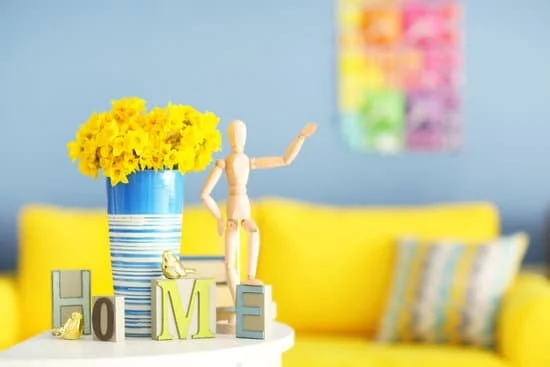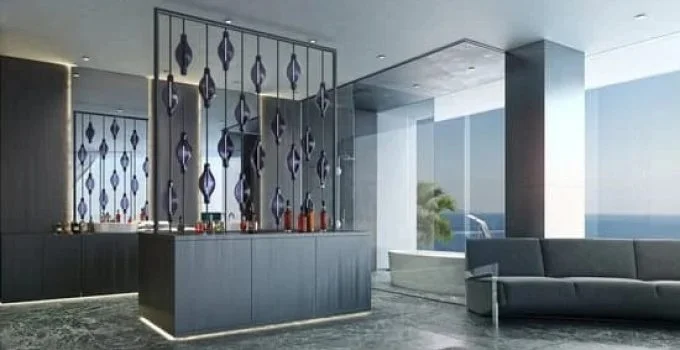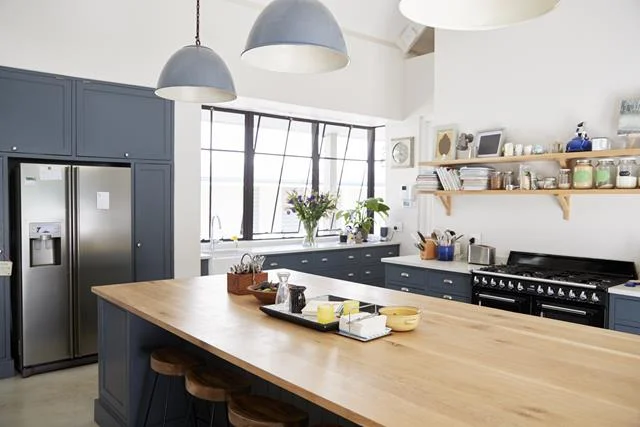Are you someone who has an innate sense of style and an eye for design? Do you find joy in curating beautiful spaces and transforming houses into homes? If so, then the world of home decoration might be the perfect career path for you. In this introductory section, we will explore the exciting world of home decoration and how you can become a part of it.
Home decoration is an art form that involves creating aesthetically pleasing and functional living spaces. It entails selecting furniture, accessories, color schemes, and layout designs that reflect the client’s personality and preferences. From cozy farmhouse interiors to sleek modern designs, home decorators have the power to transform any space into a reflection of their clients’ desires.
In this article, we will guide you through every step of becoming a home decorator – from discovering your passion for design to establishing yourself as a reputable professional in the industry. We will delve into the key qualities and skills needed to succeed in this field, explore education and training pathways, discuss essential tools and supplies, and share tips from established decorators who have paved their way to success.
So if you are ready to embark on a journey filled with creativity, inspiration, and endless possibilities, let’s dive right in.
Discover the Passion
One of the first steps to becoming a successful home decorator is to uncover and nurture your passion for design. While anyone can decorate a space, it takes a special set of qualities and skills to excel in this field. In this section, we will delve into the key qualities and skills that are necessary for a home decorator to thrive.
Firstly, creativity is undoubtedly one of the most important qualities for a home decorator to possess. Being able to think outside the box, come up with unique design ideas, and envision how different elements will work together is essential in creating beautiful and personalized spaces. A creative eye allows home decorators to transform ordinary rooms into extraordinary ones.
In addition to creativity, attention to detail is another crucial quality for a successful home decorator. Every element within a space, from furniture placement to color schemes, plays a role in creating the desired atmosphere. Paying close attention to even the smallest details ensures that every aspect of the design will be harmonious and cohesive.
Furthermore, excellent communication and interpersonal skills are vital for working effectively with clients. Home decorators must be able to listen carefully to their clients’ needs and preferences, while also being able to clearly articulate their own ideas and recommendations. Building strong relationships with clients is key in order to understand their vision and execute it flawlessly.
To summarize, discovering your passion for design is just the beginning of your journey as a home decorator. By cultivating key qualities such as creativity, attention to detail, and strong communication skills, you can lay a strong foundation for success in this exciting field.
| Key Qualities | Key Skills |
|---|---|
| Creativity | Attention to Detail |
| Excellent Communication | Interpersonal Skills |
Building a Strong Foundation
Building a strong foundation is crucial for anyone looking to become a successful home decorator. While creativity and a keen eye for design are essential qualities, obtaining the right education and training can provide decorators with the knowledge and skills needed to excel in their field. In this section, we will explore the various education and training pathways available to aspiring home decorators.
Pursuing a Degree in Interior Design
One of the most common routes to becoming a home decorator is by pursuing a degree in interior design. Many colleges and universities offer bachelor’s degrees in interior design that provide students with a comprehensive understanding of the principles and techniques of design, color theory, space planning, and more.
These programs often incorporate hands-on projects, studio work, and internships to give students practical experience in the field. Graduating with a degree in interior design can not only enhance your credibility as a home decorator but also open doors to job opportunities within established design firms.
Completing Certification Programs
For those looking for more flexible and affordable options, certification programs can be a great pathway to gaining essential knowledge and skills in home decoration. Many professional organizations and institutions offer certification programs specifically tailored for aspiring decorators. These programs typically cover topics such as basic design principles, color psychology, furniture selection and arrangement, lighting techniques, window treatments, and more. Completing these programs can demonstrate your commitment to continuing education within the field of home decoration.
Apprenticeships or Mentorship Programs
In addition to formal education options, apprenticeships or mentorship programs can provide valuable hands-on experience in home decoration. Working alongside experienced professionals allows aspiring decorators to learn from their expertise while honing their own skills. This real-world experience provides an opportunity to gain practical knowledge about working with clients, managing budgets, sourcing materials, and navigating industry challenges.
Showcasing Your Style
Developing a unique design aesthetic is a crucial aspect of becoming a successful home decorator. In this section, we will explore the ways in which aspiring home decorators can nurture their creativity and develop their own signature style.
Exploring Different Design Styles
One of the first steps to showcasing your style as a home decorator is to explore and familiarize yourself with different design styles. From modern and minimalist to eclectic and bohemian, there are countless design styles to choose from. By immersing yourself in various styles, you can begin to understand the elements that define each one and identify the ones that resonate with you personally. This understanding will form the basis for developing your own unique design aesthetic.
Experimenting with Colors, Patterns, and Textures
Colors, patterns, and textures play a significant role in creating visually appealing spaces. As a home decorator, it is essential to experiment with these elements to develop your own style. Start by playing around with different color palettes – neutrals, bold hues, or even monochromatic schemes – to see which combinations evoke certain moods or emotions for you. Additionally, exploring patterns and textures through fabrics, wallpapers, rugs, and other materials can add depth and interest to your designs.
Adding Personal Touches
Nurturing creativity as a home decorator means infusing your personal preferences and experiences into your designs. Use your unique perspective to create spaces that are meaningful and reflective of your clients’ personalities. Incorporate personal touches such as family photographs or treasured heirlooms into your designs to add an extra layer of individuality. This attention to detail will not only help you stand out as a decorator but also create spaces that feel more personal and inviting.
By continually nurturing creativity through exploration of different styles, experimenting with colors/patterns/textures, and adding personal touches into each project’s design, home decorators can develop a unique design aesthetic that sets them apart from others in the field. This distinctive style will attract clients who are looking for a decorator with a fresh and individual approach to home design.
The Ultimate Toolbox
Home decorators rely on a variety of tools, supplies, and software to bring their design visions to life. These essential resources are crucial for creating beautiful and functional spaces. From measuring tools to design software, home decorators need to have the right toolbox at their disposal. Here are the key elements that make up the ultimate toolbox for home decorators.
1. Measuring Tools: Accurate measurements are essential in home decoration projects. A tape measure, laser level, and angle finder are some of the basic measuring tools that every home decorator should have. These tools help ensure precise placement and alignment of furniture, artwork, and other elements within a space.
2. Design Software: Technology has revolutionized the home decoration industry, and design software is now an invaluable asset for home decorators. Programs like AutoCAD and SketchUp allow decorators to create detailed floor plans and 3D renderings of their design ideas. This helps clients visualize the end result before any work is done.
3. Paint Supplies: Painting walls or adding a fresh coat of paint to furniture can dramatically transform a space. Home decorators should have a collection of high-quality paint brushes, rollers, drop cloths, painter’s tape, and paint trays in their toolbox. It’s also important to have a variety of paint colors on hand to match different design styles.
4. Fabric Samples: Textiles play a critical role in home decoration projects, whether it’s choosing the right upholstery for furniture or selecting curtains that complement the overall design scheme. Having fabric samples allows decorators to compare textures, patterns, and colors in person before making any final decisions.
5. Lighting Tools: Proper lighting is essential for setting the mood and enhancing the aesthetic appeal of a room. A home decorator should invest in lighting tools such as light meters to measure intensity levels, dimmer switches for adjustable lighting options, and a range of light bulbs to create different lighting effects.
6. Decorative Accessories: The right decorative accessories can truly elevate a space and add that personal touch. Home decorators should have a collection of vases, candles, picture frames, decorative pillows, and other accessories that can be easily mixed and matched to enhance the overall design of a room.
Having these essential tools, supplies, and software in their toolbox equips home decorators with everything they need to bring their creative ideas to life. With the right resources at hand, they can confidently take on any home decoration project and deliver stunning results for their clients.
Creating Your Portfolio
As a home decorator, one of the most important aspects of your career is building a strong portfolio that showcases your work and highlights your unique design aesthetic. A well-curated portfolio not only demonstrates your skills and abilities to potential clients but also helps you establish credibility and build a strong reputation in the industry. Here are some key steps to creating an impressive portfolio as a home decorator.
- Start by selecting your best work: Begin by carefully selecting the projects that best showcase your skills and style. Choose a variety of projects that highlight different aspects of your expertise, such as color schemes, furniture arrangement, or overall design concept. It’s important to include before-and-after photos to show the transformative power of your work.
- Capture professional-quality photographs: Invest in quality photography equipment or hire a professional photographer to capture high-resolution images of your completed projects. Good lighting, composition, and angles can make a significant difference in how your designs are perceived. Make sure the photos accurately depict the space and effectively convey the ambiance you created.
- Organize and present your work thoughtfully: Arrange your portfolio in a logical order, starting with an introduction or biography section to give clients insight into who you are as a designer. Follow this with clear sections for each project, providing details about the client’s brief, challenges faced during the project, and how you overcame them.
Include images showcasing different angles of each space along with descriptions explaining design choices, materials used, and any special techniques employed.
Creating an online portfolio is essential for reaching wider audiences beyond your local network. A website or social media platforms like Instagram or Houzz can serve as effective tools for displaying your work professionally. Ensure that it is visually appealing and easy to navigate so that potential clients can quickly get an overview of your style and browse through different projects.
Ultimately, building a strong reputation as a home decorator depends on continuously updating and refining your portfolio. Keep incorporating new projects and removing older ones to ensure that your work remains fresh and relevant. By consistently showcasing your abilities through a well-curated portfolio, you can attract more clients and establish yourself as a sought-after home decorator in the industry.
| Key Steps to Creating an Impressive Portfolio |
|---|
| 1. Select your best work, showcasing different aspects of your expertise. |
| 2. Capture professional-quality photographs of your completed projects. |
| 3. Organize and present your work thoughtfully, including project details and descriptions. |
Establishing Your Presence
As a home decorator, establishing your presence in the industry is crucial to attracting clients and building a successful career. Effective marketing strategies can help you showcase your skills, reach potential clients, and build a strong reputation. Here are some key steps to consider when it comes to marketing yourself as a home decorator:
Create an Online Presence
In today’s digital age, having an online presence is essential for any business or professional. Start by creating a website that showcases your portfolio, design aesthetic, and services offered. Make sure to include high-quality images of your work and testimonials from satisfied clients. Utilize search engine optimization techniques to improve your website’s visibility in search engine results.
Maintain active social media profiles on platforms like Instagram, Pinterest, and Houzz, where you can share images of your designs and engage with potential clients. Consider starting a blog where you can share design tips, trends, and project updates to establish yourself as an authority in the field.
Network within the Industry
Networking is crucial for gaining exposure and connecting with potential clients. Attend trade shows, industry conferences, and local events related to home decoration or interior design. Connect with other professionals in the field such as real estate agents, architects, or contractors who may refer clients to you.
Consider joining professional organizations such as the Interior Design Society or the American Society of Interior Designers (ASID). These organizations provide opportunities for networking with other professionals in the industry and may offer resources for marketing your services as well.
Utilize Word-of-Mouth Marketing
Word-of-mouth recommendations are highly valuable when it comes to attracting clients in the home decoration industry. Offer exceptional service and attention to detail to every client you work with so they become enthusiastic advocates for your services.
Ask satisfied clients if they would be willing to provide testimonials or reviews that you can showcase on your website or social media profiles. Consider offering referral incentives, such as a discount on their next project, to encourage clients to refer you to their friends and family.
By implementing these marketing strategies, you can establish your presence as a home decorator and attract clients who are seeking your unique design aesthetic and expertise. Remember to focus on showcasing your work, networking with industry professionals, and providing exceptional service to build a strong reputation in the field.
The Path to Success
Establishing oneself as a successful home decorator requires more than just creative flair and design skills. In this section, we will delve into the path to success by exploring tips, tricks, and best practices shared by established home decorators in the industry. Learning from those who have already achieved success can provide invaluable insights and guidance for aspiring home decorators.
One important tip that many established home decorators emphasize is the significance of networking and building relationships within the industry. Developing connections with other professionals, such as architects, contractors, and suppliers, can open doors to new opportunities and collaborations. Attending industry events, joining professional associations, and participating in online forums or social media groups are all effective ways to expand your network.
Another key aspect of becoming a successful home decorator is honing your business acumen. It is essential to understand the financial aspects of running a business, including pricing your services appropriately, managing budgets for client projects, and keeping track of inventory and expenses. Investing time in learning about marketing strategies, branding techniques, and effective communication skills can also greatly contribute to your success as a home decorator.
While creativity is crucial in the field of home decoration, it is equally important to stay updated with current trends and styles. Established home decorators advise aspiring decorators to continually educate themselves about emerging designs, materials, color schemes, and technological advancements in the industry. Regularly attending trade shows or design exhibitions can help you stay informed about changing preferences and give you an opportunity to discover innovative ideas.
| Tips | Tricks | Best Practices |
|---|---|---|
| Networking within the industry | Honing business acumen | Staying updated with trends |
| Developing connections with professionals | Learning about marketing strategies | Attending trade shows and exhibitions |
| Participating in industry events | Understanding financial aspects of business | Continuous education and learning |
By incorporating these tips, tricks, and best practices into your career as a home decorator, you can increase your chances of achieving long-term success in the industry. Remember, success is not just about talent and creativity; it also involves building a strong professional network, developing business skills, and staying informed about current trends.
Embracing the Entrepreneurial Spirit
As a home decorator, embracing the entrepreneurial spirit can open up a world of business opportunities and help you grow your brand in the industry. Whether you choose to work independently or establish your own company, there are several paths you can explore to build a successful business in home decoration.
One of the first steps in embracing the entrepreneurial spirit as a home decorator is to determine your target market. Consider who your ideal clients are – do they belong to particular demographics or have specific design preferences? Understanding your niche will help you tailor your services and marketing efforts accordingly.
Once you have identified your target market, it’s crucial to develop a strong brand identity that sets you apart from other home decorators. This includes choosing a memorable business name, designing a visually appealing logo, and creating professional branding materials such as business cards and flyers. Building a cohesive brand will not only attract clients but also establish credibility and trust in the industry.
In addition to branding, it’s important to establish an online presence for your home decoration business. Create a website that showcases your portfolio, highlights your services, and provides contact information for potential clients. You can also leverage social media platforms like Instagram and Pinterest to share photos of your work, engage with followers, and reach a wider audience.
Finally, networking plays a vital role in growing your home decoration brand. Attend industry events such as trade shows and design conferences to connect with fellow professionals, potential clients, and suppliers. Join local business organizations or interior design associations that can provide valuable resources, mentorship opportunities, and referrals.
By embracing the entrepreneurial spirit as a home decorator and exploring various business opportunities, you can take control of your career and create a thriving enterprise in the exciting world of home decoration.
The Future of Home Decoration
The field of home decoration is constantly evolving and keeping up with industry trends is crucial for aspiring decorators to stay relevant and thrive in their careers. In this section, we will explore the future of home decoration, including emerging trends and evolving opportunities for decorators.
Embracing Sustainability: Eco-Friendly Design
With growing concerns about climate change and the environment, there is an increasing demand for eco-friendly and sustainable design in home decoration. More homeowners are seeking environmentally responsible options when it comes to furniture, materials, and overall design choices.
As a home decorator, it is important to stay informed about sustainable products, such as recycled materials or energy-efficient appliances, that can be incorporated into your designs. By embracing sustainability in your work, you can attract environmentally conscious clients and position yourself as a forward-thinking decorator.
Technology Integration: Smart Homes
The rise of smart technology has had a significant impact on the way homes are designed and decorated. Smart homes incorporate various technologies that allow homeowners to control elements like lighting, heating, security systems, and entertainment with the use of their smartphones or voice commands. As a decorator, it is important to understand how these technologies can be seamlessly integrated into your designs.
Familiarize yourself with the latest smart home devices available in the market and learn how to incorporate them aesthetically into your projects. By being well-versed in smart home design, you can cater to the growing demand for technologically advanced living spaces.
Diverse Design Influences: Cultural Fusion
As societies become more multicultural and interconnected than ever before, there is a shift towards incorporating diverse design influences into home decoration. Homeowners are increasingly interested in infusing elements from different cultures into their living spaces to create unique and personalized interiors. As a decorator, being knowledgeable about different design styles from around the world can provide you with a competitive edge.
Stay updated on global design trends, study different cultures’ aesthetics, and learn how to incorporate them harmoniously into your projects. By embracing cultural fusion in your designs, you can attract clients who seek a distinct and truly personalized living environment.
Conclusion
As we have explored in this article, becoming a home decorator is an exciting journey that requires a combination of passion, creativity, and business acumen. By uncovering the key qualities and skills of successful home decorators, understanding the education and training pathways available, and nurturing creativity to develop your own unique design aesthetic, you can lay a strong foundation for your career.
Equally important is building a strong portfolio that showcases your work and establishes your reputation as a home decorator. This can be achieved by utilizing essential tools, supplies, and software specifically designed for home decorators. By effectively marketing yourself and attracting clients through various channels, you can establish your presence as a professional in the field.
To truly thrive as a home decorator, it is crucial to continue learning from established professionals in the industry. Tips, tricks, and best practices shared by experienced home decorators can offer valuable insights that enable you to navigate challenges more effectively. Additionally, embracing the entrepreneurial spirit opens up opportunities to explore different business avenues and grow your brand as a home decoration expert.
Looking towards the future of home decoration, it is important to stay updated on industry trends and evolving opportunities. As technology advances and new design styles emerge, being adaptable and open to change will be key to staying relevant in the field. By continuously honing your skills and keeping an eye on emerging trends, you can position yourself as an expert in the ever-evolving world of home decoration.
In conclusion, if you have a passion for transforming spaces into beautiful havens for individuals or families alike, now is the time to embark on your career as a home decorator. By following these steps outlined in this article – from discovering your passion to establishing your presence – you can kickstart an exciting journey towards success in the world of home decoration. So go ahead, unleash your creativity and embark on this fulfilling adventure today.
Frequently Asked Questions
What qualifications do you need to be a decorator?
To become a decorator, there are several qualifications that can be beneficial. While having a formal education in interior design or a related field can be advantageous, it is not always necessary. Many decorators gain qualifications through vocational programs, certificate courses, or even apprenticeships.
It is important to have a strong understanding of design principles, color schemes, spatial planning, and knowledge of various materials and finishes commonly used in decorating. Excellent communication and interpersonal skills are also crucial for effectively working with clients and understanding their needs and preferences.
How do I start a career in decorating?
Starting a career in decorating requires a combination of education, experience, and building a strong portfolio. Consider enrolling in an accredited interior design program or taking relevant courses to enhance your knowledge and skills in the field. Practical experience can be gained by working on small projects for friends and family or volunteering to assist established decorators on larger projects.
Networking with professionals already in the industry can also provide opportunities to learn from their experiences and potentially secure internships or entry-level positions. Building a diverse portfolio showcasing your work will help demonstrate your abilities to potential clients or employers.
How can I get into interior decorating without a degree?
It is possible to get into interior decorating without a degree by focusing on building practical skills, gaining relevant experience, and cultivating industry connections. Start by studying books and online resources that provide fundamental knowledge about interior design principles, color theory, space planning techniques, and current trends. Take advantage of workshops, seminars, or short courses offered by professional organizations or local community colleges that focus specifically on aspects of interior decorating you wish to specialize in.

Look for opportunities to assist experienced decorators on real projects or offer your services pro bono to gain hands-on experience. By actively seeking out mentorship from established professionals in the field and continuously honing your skills through self-study and practice, it’s possible to establish yourself as an interior decorator even without a degree.

Hello, lovely readers! I’m Sheila Collins, and I’m delighted to be your trusted guide on this exciting journey of home improvement, design, and lifestyle. As the founder and editor-in-chief of Home Guide Blog, I’m passionate about all things related to homes, and I’m here to share my knowledge, experiences, and insights with you.





